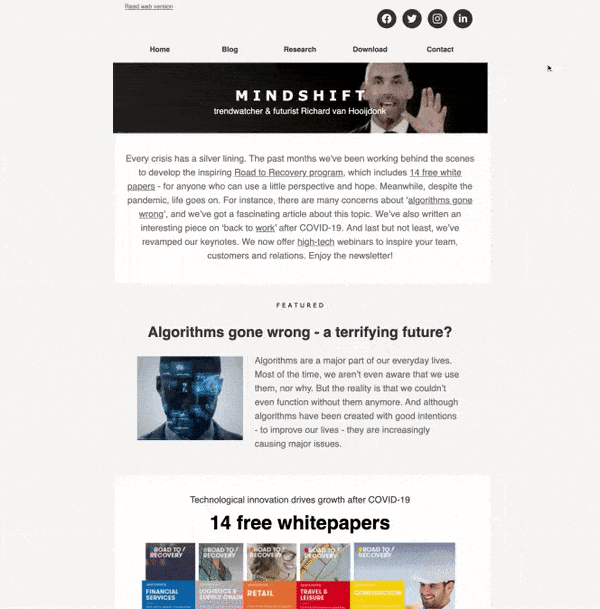Trends that Shape the Future of Management
The management sector is rapidly evolving. Business leaders should step into the future and adapt to the multitude of trends that are emerging - such as the flat work structures many companies have adopted in recent years. It’s changing the role of managers and CEOs, who spend less time on instructing employees how to do their jobs, and more on transforming them into future leaders. These new management structures also enable CEOs to dedicate more time to the company strategy and (communicating) the company vision.
Some companies will go even further and ‘eliminate’ CEOs and managers altogether. For example, Decentralised Autonomous Organisations (DAOs) operate on blockchain technology, allowing shareholders to directly vote on business proposals submitted via smart contracts.
There’s a wide range of other technologies set to disrupt the management sector. Artificial intelligence (AI), for instance, can help business owners to streamline the hiring process, among other things, making it easier to find qualified employees. Virtual reality (VR) and augmented reality (AR) are already proving invaluable in the training of employees and will continue to lead to vast improvements in the future. In addition to this, employees are increasingly expecting companies to invest more in their education and development.
Another trend we see in management is the emergence of technologies that change the way managers track employees. Some Swedish companies use microchips to monitor workers in order to increase efficiency, and wearing health- and fitness-trackers might one day even be a condition for employment. These and other management trends are transforming workplaces and companies all over the globe. You can read more about it on our blog where we explore all the ways in which AI, robotics, and other tech developments are changing our world.